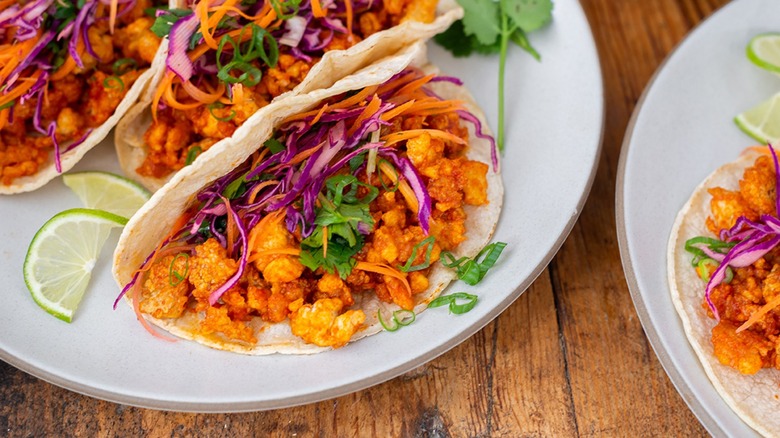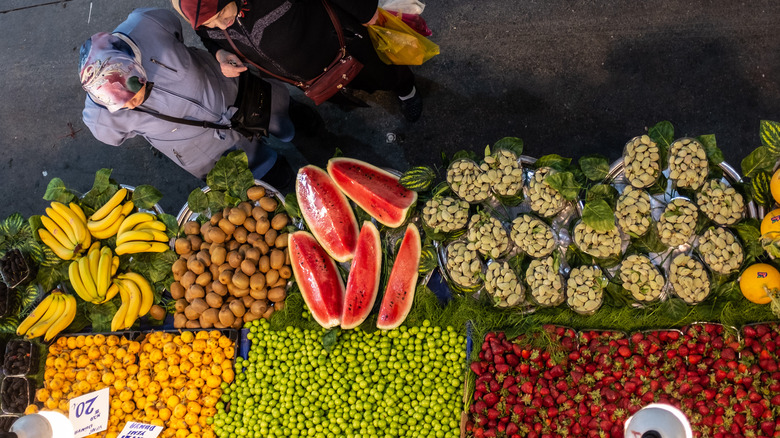The Difference Between Plant-Based And Keto Diets
With such a wide variety of different diets, it can be difficult to know what you should — or shouldn't — be eating for the best health possible. Some of the most popular diets right now include plant-based eating, and the ketogenic diet.
Plant-based diets, like veganism and vegetarianism, limit or cut out the consumption of animal products, like milk, cheese, and meat, according to Healthline. There are several different types of plant-based diets, but the biggest difference is that vegans completely eliminate all products that come from animals, including eggs and dairy products. Some vegetarians, like lacto-ovo vegetarians, will still consume foods that come from animals, so long as the animal was not slaughtered for its production (via Medical News Today).
Ketogenic — often shortened to keto — diets also restrict the types of foods that can be eaten. This diet focuses on low-carbohydrate, high-fat foods, and is designed to help the body become efficient at burning fat for energy, per Healthline. The outlet states that people who practice a keto diet avoid sugary foods, grains, most fruits, beans, and root vegetables, and instead focus more on meats, eggs, nuts, low-carb veggies, and healthy oils. Healthline says this diet is great for people with diabetes and epilepsy. But if you are looking for a diet to help prevent certain diseases, you may want to consider something more plant-based.
A diet change could impact your health
New research shows that plant-based diets could be more beneficial in preventing cancer than keto diets. The study found that following a plant-based diet could reduce your risk of cancers, and increase fiber consumption, leading to better digestive health (via National Library of Medicine). The study also concluded that the diet could reduce the risk of metabolic disorders in cancer survivors.
The study focused on a whole foods plant-based diet, which prioritizes nutrient-dense foods like beans, nuts, fruits, and vegetables. VegNews reports that cancer risk was reduced with this diet due to lower fat, reduced inflammation, and increased anti-inflammatory antioxidants. The American Cancer Society even recommends limiting or eliminating meat from the diet, and eating more fruits and vegetables.
If you're looking to make a change in your diet, plant-based diets have proven to be more beneficial than ketogenic ones in preventing cancer. However, since everyone's dietary needs are different, consult your doctor or nutritionist to find out which route might be best for you.

